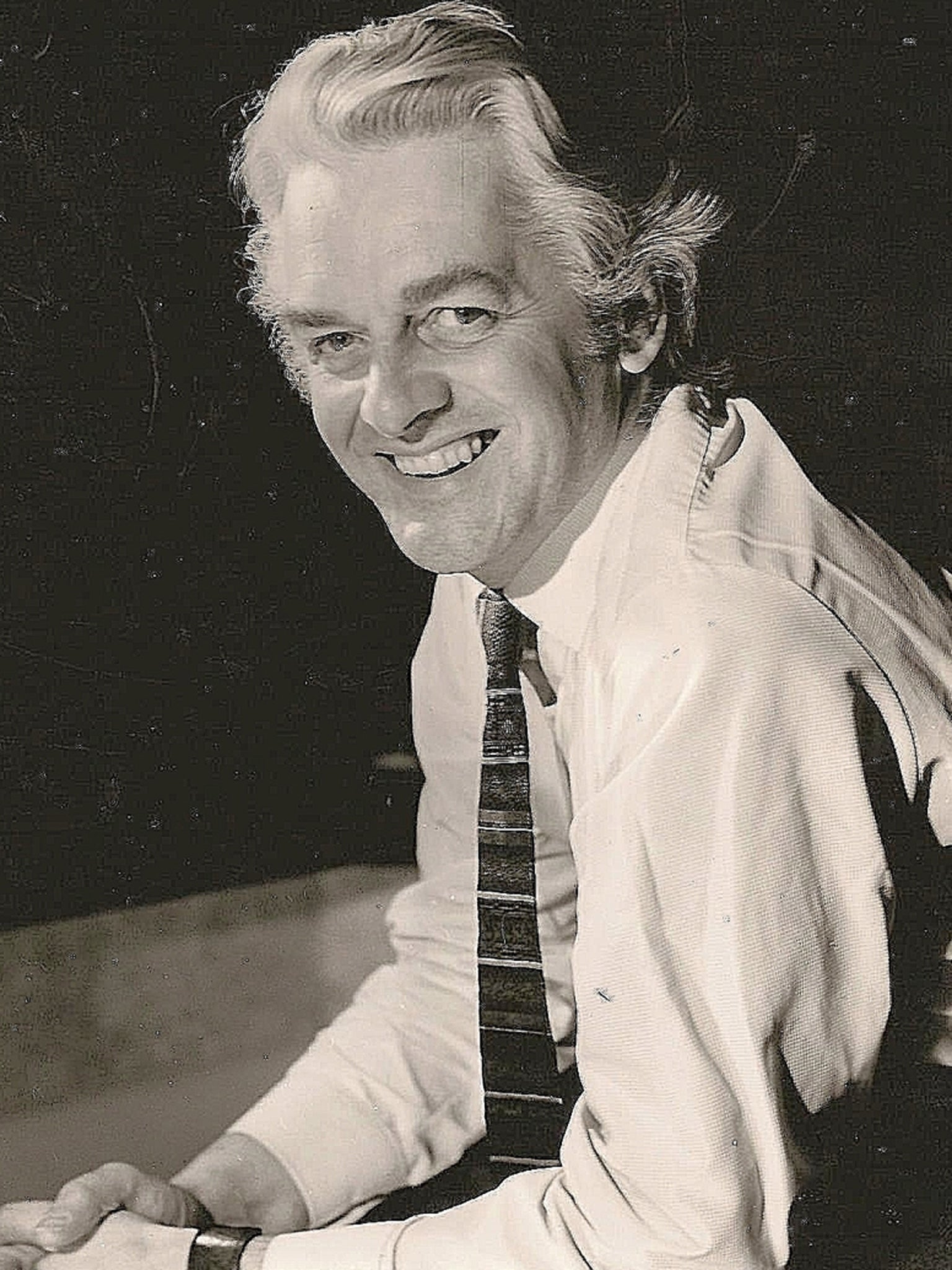
Your support helps us to tell the story
From reproductive rights to climate change to Big Tech, The Independent is on the ground when the story is developing. Whether it's investigating the financials of Elon Musk's pro-Trump PAC or producing our latest documentary, 'The A Word', which shines a light on the American women fighting for reproductive rights, we know how important it is to parse out the facts from the messaging.
At such a critical moment in US history, we need reporters on the ground. Your donation allows us to keep sending journalists to speak to both sides of the story.
The Independent is trusted by Americans across the entire political spectrum. And unlike many other quality news outlets, we choose not to lock Americans out of our reporting and analysis with paywalls. We believe quality journalism should be available to everyone, paid for by those who can afford it.
Your support makes all the difference.John Cain was a senior BBC executive who paved the way for social-action broadcasting such as Live Aid and Red Nose Day. It was his genius to see that while broadcasting a programme about a particular issue was all very well, in order for it truly to make a difference a huge infrastructure and support system of phone lines and associated services was necessary.
In 1975, when Cain was head of the BBC Further Education department, he commissioned a television series, On the Move, that tried to reach people concealing literacy difficulties. The programmes starred Bob Hoskins, but in order to succeed the project depended on setting up national phone lines which would provide individuals with sensitive help.
The BBC governors refused to spend licence-fee money on such a thing, so it became necessary to set up an organisation outside the BBC to do the job – and to find money to pay for it. This was done rapidly by setting up the Adult Literacy Support Services Fund. Cain then had the vision to see that this model could serve many projects and many broadcasters on a more permanent basis.
David Hargreaves, producer of On the Move, said: "John always brought energy and drive to the task of finding more funds, to widening the terms of the charitable remit, and to reaching out and inviting other broadcasters in. Any reservations that Channel 4, and later ITV, might have had about joining an organisation which must have seemed to them very much the BBC's baby, were assuaged by John's evident honesty and decency."
In 1980 Cain became first chairman of what had by now become Broadcast Support Services. This, little by little, developed the resources and systems for effective back-up which made huge charitable specials such as Comic Relief and ITV's Telethons both possible and successful.
John Cain was born in 1924 into what he described as a "lower-middle class family". His father was a chauffeur, his mother a shop assistant. They lived in Pimlico and John won scholarships, first to Emmanuel School and then to the City and Guilds, Imperial School in London. But the Blitz and family poverty forced him to drop out and join the RAF, where he trained as aircrew. He finished his training just as the war ended but stayed on until 1947, working in the RAF education service. On demob he was given a government grant to become a teacher. He taught mathematics at Willesden grammar school from 1950-57, followed by two years at a huge new boys' comprehensive in Tulse Hill, south London.
In 1954 he married Shirley Roberts, an actress whose first job after leaving Rada was playing in the Cherry Orchard, directed by John Gielgud.
In 1961 Cain took a job giving public lectures at the Science Museum. There he began to use video cameras, which he found helped teaching and learning. So a logical next move was into educational television. He became assistant head of school broadcasting at Associated Rediffusion but he preferred the public-service ethos and joined BBC school television as a producer of maths programmes. He soon extended his range into history and science as well.
He swiftly rose at from assistant head, to head, of Further Education television in 1972. He presided over a golden age of foreign-language programmes, the early days of Delia Smith, a fine series on the history of Ireland and many other TV riches.
Moving further upwards he became assistant controller of Education in 1977 just as the BBC began to hit political, bureaucratic and economic storms. He experienced at first-hand a graceless visit to the studios by Mrs Thatcher – strongly anti-BBC even before she became prime minister.
In 1981 he took on his last post in the BBC, controller of public affairs. He enjoyed the political insights which his exalted standpoint provided and also dealing with the BBC regions, with broadcasting research and with the charges of bias – coming at this period mainly from the extreme left – which the corporation had to face. After retirement in 1984 he wrote a highly readable account of 70 years of BBC broadcasting. He added further to his tally of degrees with a PhD from the Open University, its subject, unsurprisingly, social action broadcasting.
A small stroke in 1996 restricted his activity, but for another decade he remained active and enjoyed growing vegetables, going to the theatre and the company of his daughters and two grandchildren. Latterly he was affected by Alzheimer's disease and spent some years in a care home close enough to his house in Chiswick for him to be visited frequently by his family.
John Clifford Cain, television executive: born London 2 April 1924; married 1954 Shirley Roberts (two daughters); died London 12 April 2013
Join our commenting forum
Join thought-provoking conversations, follow other Independent readers and see their replies
Comments